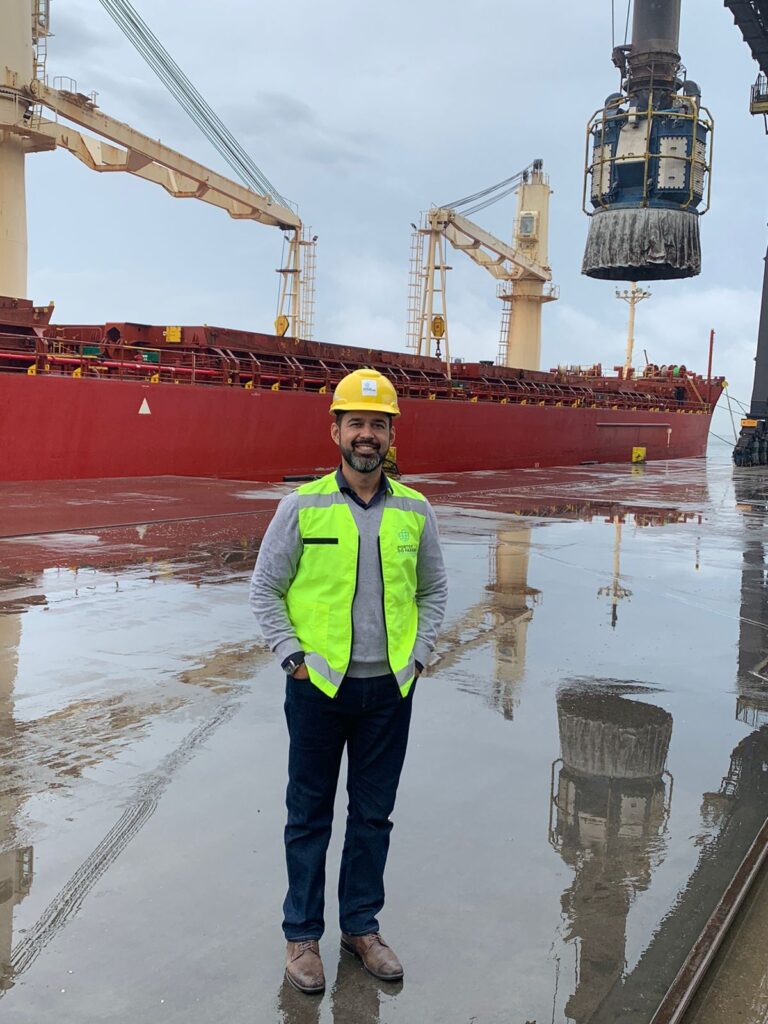Igor Pontes (Pesse LogTech): Technology at the service of Logistics

Igor Pontes, managing partner and CEO of Pesse Tecnologia e Logística
How can technology help in the logistical control of the transport chain?
Founded through the combination of a logistics consulting company and a software factory, Pesse LogTech benefited from the Ceará Clusters program and is now offering an intelligence and transparency solution for the transport chain. In this interview, Dênio Igor Silva de Pontes, CEO and co-founder of the company, details the innovative solutions that this system brings to the market and talks about the opportunities in the logistics area of Ceará.
What is Pesse LogTech?
We are the result of the union of a logistics consultancy and a software factory. About two years ago these two companies got together and created a startup to solve visibility problems within the transportation chain. Our work aims to bring more intelligence and transparency to the movement of trucks, especially in cargo transportation, by capturing data and generating information in real time.
What problems did you identify in the market to develop this solution?
The problem refers to the fact that the truck is a single machine and has only the driver as its operator, and both are not inside the closed and controlled environment of a factory or an industry. In other words, it is a machine and a driver, and because they are working outside, we don't have a real overview of what is happening. We created a platform so that the company can see, in real time, the driver's behavior. This way, we can follow aspects such as speed, braking, stops, ignition on and if the equipment is moving in an improper way, which generates fuel costs and route deviation. This information is delivered to the organizations from the data we capture from the vehicles.
In this case, how does this data benefit companies?
Companies, in general, already count on this data, however, in a very superficial way and without the conditions to transform it into real time information. In view of this, we created a database in the Big Data format and this information is captured by a device called telemetry placed inside the trucks. The next step is to put the information in a database and, in real time, generate management reports for the fleet managers to make their decisions.
What were the benefits that the Clusters program provided for the company?
It was a great opportunity to generate more visibility for the business. We started to be constantly invited to events, which is very valid for a startup. The program also provides all the technical support. Besides, there is also the issue of financial support, and the scholarships we receive, and this is very important for those who are starting out. We made great progress, and thanks to the program we conquered our first client, the Companhia Siderúrgica do Pecém, the largest industry in the state. This catapulted our business to a higher level and consolidated us as a technology company in the transportation area.
What are Pesse's expansion plans?
We are focused on the Ceará market, and we see a large scenario of local and national opportunities. In the last few months, we have strengthened commercial partnerships, to leverage sales.
What great opportunities are open to this market? How can this area of logistics arouse the interest of future investors?
I see logistics as a very promising area. When comparing Brazil to developed countries, especially in the North, we see that we have a long way to go in terms of improvements, learning and expertise. In terms of intelligence, software, technology and process improvement. We have new opportunities. The capital invested in this area today in Brazil, especially after the Covid-19 pandemic, has been well remunerated. In terms of cargo transport and storage, the Brazilian market, in general, has become more sophisticated, copying the model of developed countries. In other words, companies have identified that the logistics area is not for amateurs. Today, there is a transition in which companies are no longer undertaking their own transport and storage to outsource these services to those who are qualified in the area. This opens many opportunities for transport companies to invest, not only in trucks, but in technology and qualified people.
What are Ceará's potentials in this area?
When we talk about maritime transportation, for example, the Port of Pecém is consolidating itself as one of the biggest hubs in Brazil, the second biggest in the North and Northeast of Brazil. This puts us in a very advantageous position, not only in terms of capacity to provide quality services, but also with the benefit of geographical location, which means we are closer to the American and European markets. Ceará has been working in recent years to consolidate itself as a major center in this area and a major cargo hub.
What opportunities are open to investors?
This can be much better seen and explored, associated with the port issue. We have the opportunity to position ourselves as a concentrator of cargo, especially for the Center-West region. Another advance is the Transnordestina railroad. We also have Fortaleza airport, which, post-pandemic, is growing again, with new investments being announced. We will have storage spaces and hotels, as well as retail areas.


